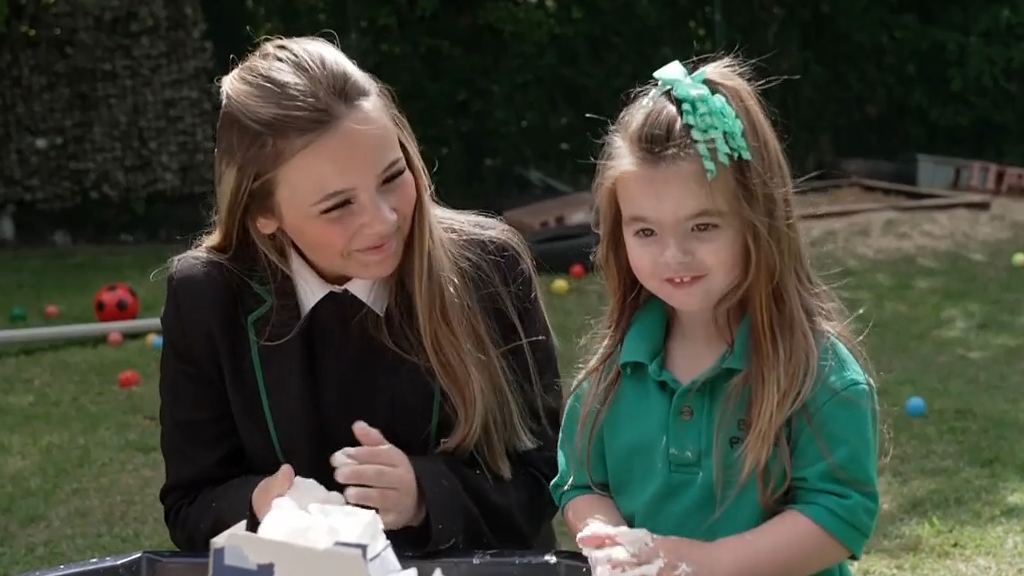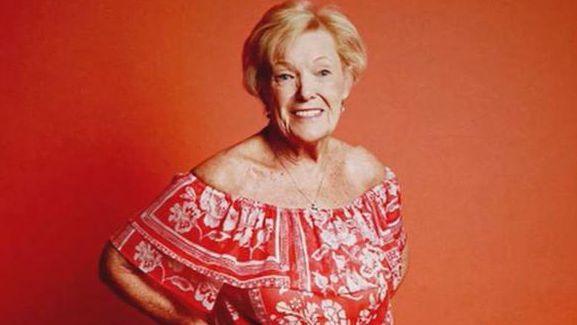Learning to sign changed my life after a brain injury
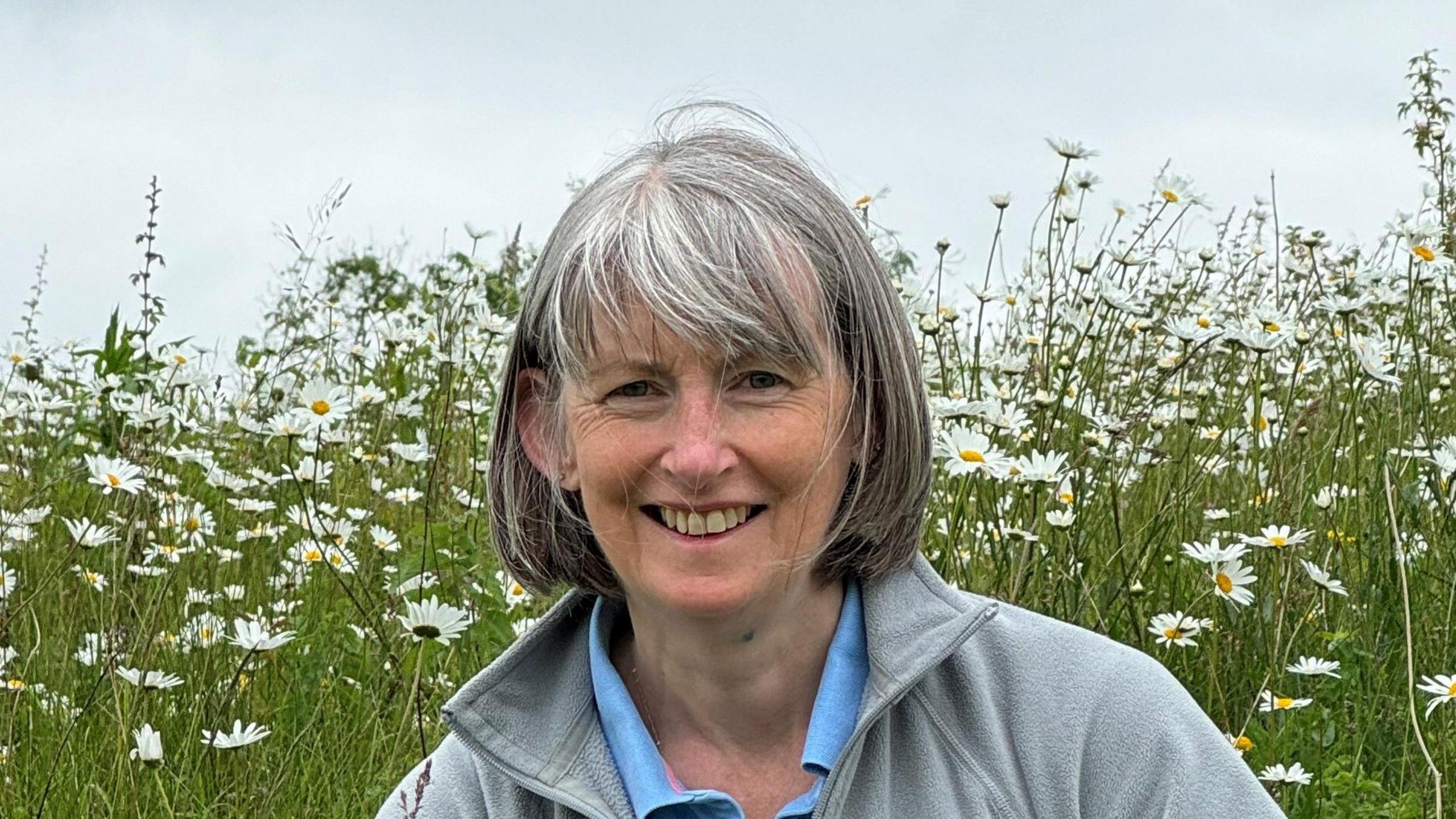
Tina was in a coma for six weeks after falling down a flight of stairs
- Published
As Tina walks onto the stage in front of hundreds of people she is beaming.
She's collecting her British Sign Language (BSL) certificate which is the culmination of a journey that began with tragedy.
"Learning BSL has helped me say words that I cannot speak," she says.
In 2018, while returning from a holiday, Tina fell down a flight of stairs and was in a coma for six weeks.
The accident caused a traumatic brain injury that dramatically changed her life, leaving her struggling to speak.
Before the fall, Tina had been a high achiever - she and her husband Mark met while working as navigators in the RAF, and Tina went on to retrain as a lawyer.
Now 59, Tina says learning sign language has given her a new way to communicate.
"I'm scared of talking sometimes but BSL has helped me relax as sometimes I remember the sign if I can't remember a word."
Three years ago, Tina and Mark moved to Hughenden Gardens Retirement Village in High Wycombe to access more support.
"When I arrived here I only spoke a bit and I was very silent as I wasn't very confident," explains Tina.
But as a result of moving to the village, they became participants in the BBC series Rose Ayling-Ellis: Old Hands, New Tricks, filmed in March, which set out to explore how British Sign Language could transform the lives of older residents.
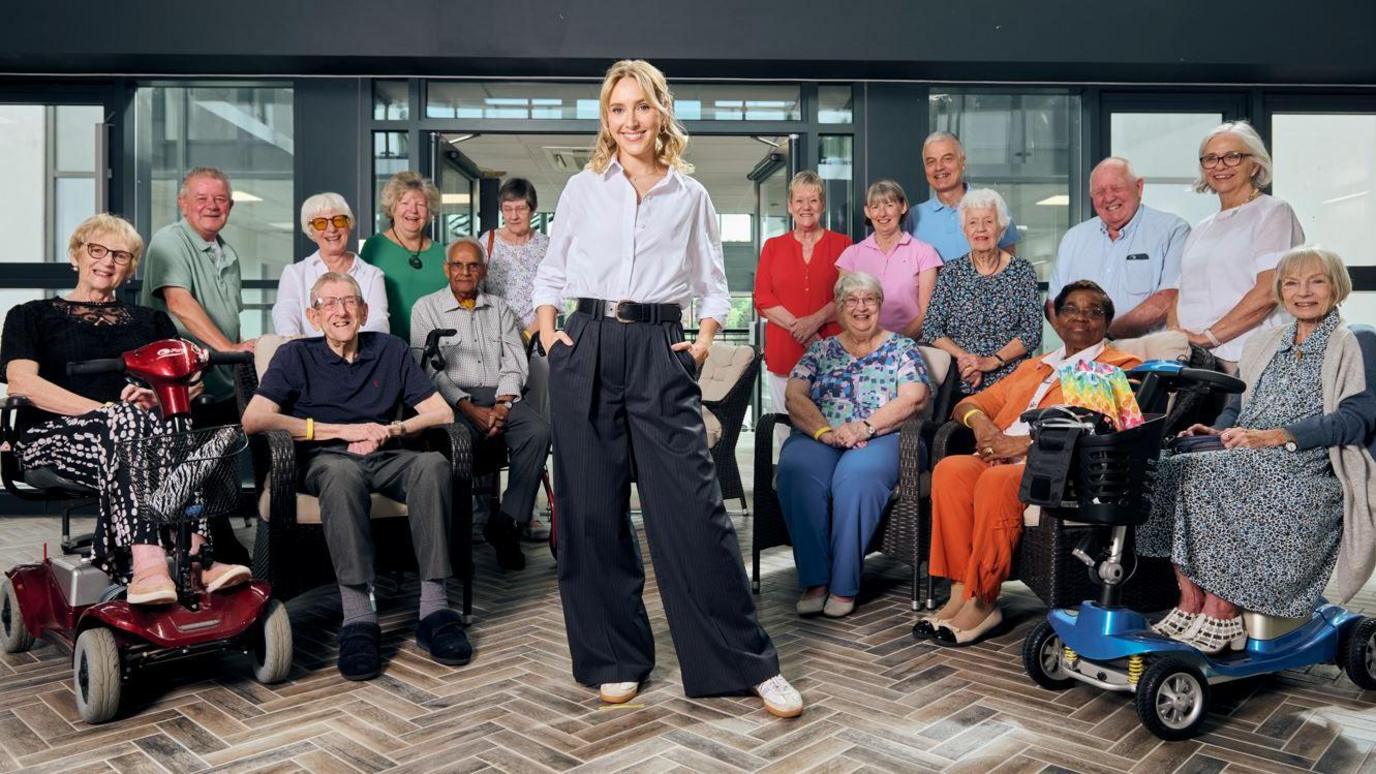
Participants of Rose's documentary say the process of learning BSL was rewarding despite being challenging at times
The series sees Rose, who has been deaf since birth, teach BSL to a group of older residents, showing how it uses visual sign language using gestures, facial expressions and body language to communicate.
"People think sign language is just for deaf people but it's so much more than that, especially for people who are losing their hearing," Ayling-Ellis explains.
"BSL has helped Tina communicate as you use your face and expressions as well as hands so you can understand emotions better," Mark, 64, says.
She is one of five residents to achieve a Level 1 BSL qualification, alongside several staff members.
"I'm so proud of them," Ayling-Ellis says. "I didn't think they could get further than the alphabet but they proved me wrong and should be proud of themselves."
Rose Ayling-Ellis: Old Hands, New Tricks
Rose takes on an uplifting experiment with a gang of old-timers to see if sign language can bring them confidence and joy in later life. After all, it's never too late to learn.
Tina has continued to learn BSL after the documentary through classes taught by her husband.
Despite never intending to teach, after taking part in the TV series, Mark now leads regular practice sessions with 20 people.
"We raised some money to get a proper instructor to give us lessons but alongside the formal lessons I run a group every week for a few hours where I put people through their paces," Mark says.
The pair have benefited immensely from learning BSL, but "it was surprisingly tiring".
"I'm fit and heathy and was still finding it tough going - we were knackered from it," Mark says.
There were classes three times a week and then homework and revision in the evening. The group started by learning the alphabet and numbers which came in handy when the residents hosted a signed bingo evening.
The lessons also proved useful in unexpected ways.
"At medical appointments we realised we could sign to each other to communicate something privately," explains Mark.
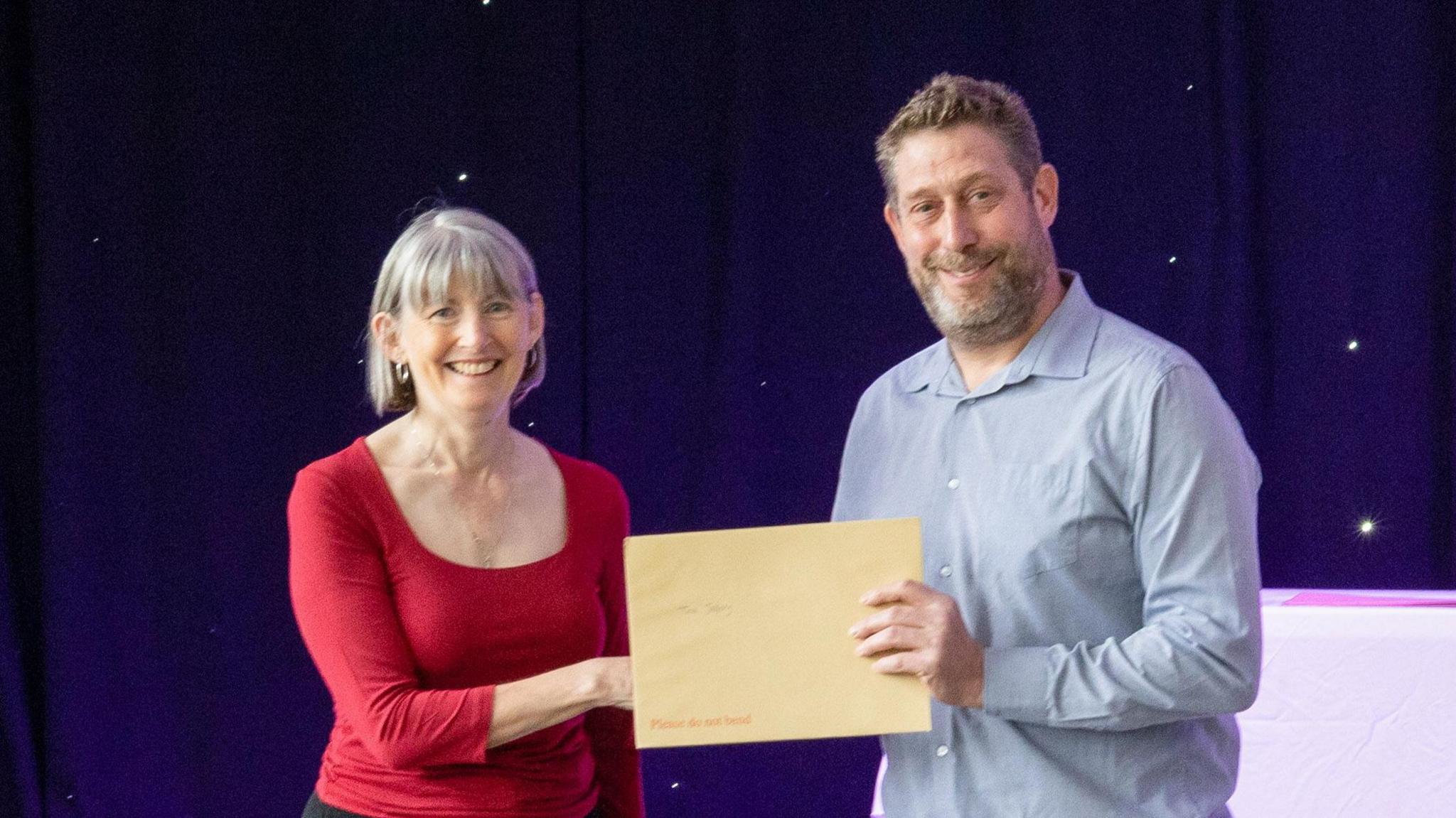
Tina is one of five participants from the show who have passed their BSL Level 1
Since the documentary aired, the couple have helped turn Hughenden Gardens into a hub of deaf awareness.
"We are running deaf classes, building links with local deaf community and investigating new technologies to help people with hearing problems," Mark says.
A monthly Deaf Café has been launched and a Jewish Deaf Association group of 29 people is due to visit the village later this month.
It's also bought residents closer together and fostered a sense of community as "there's nothing like adversity to help a team gel," according to Mark.
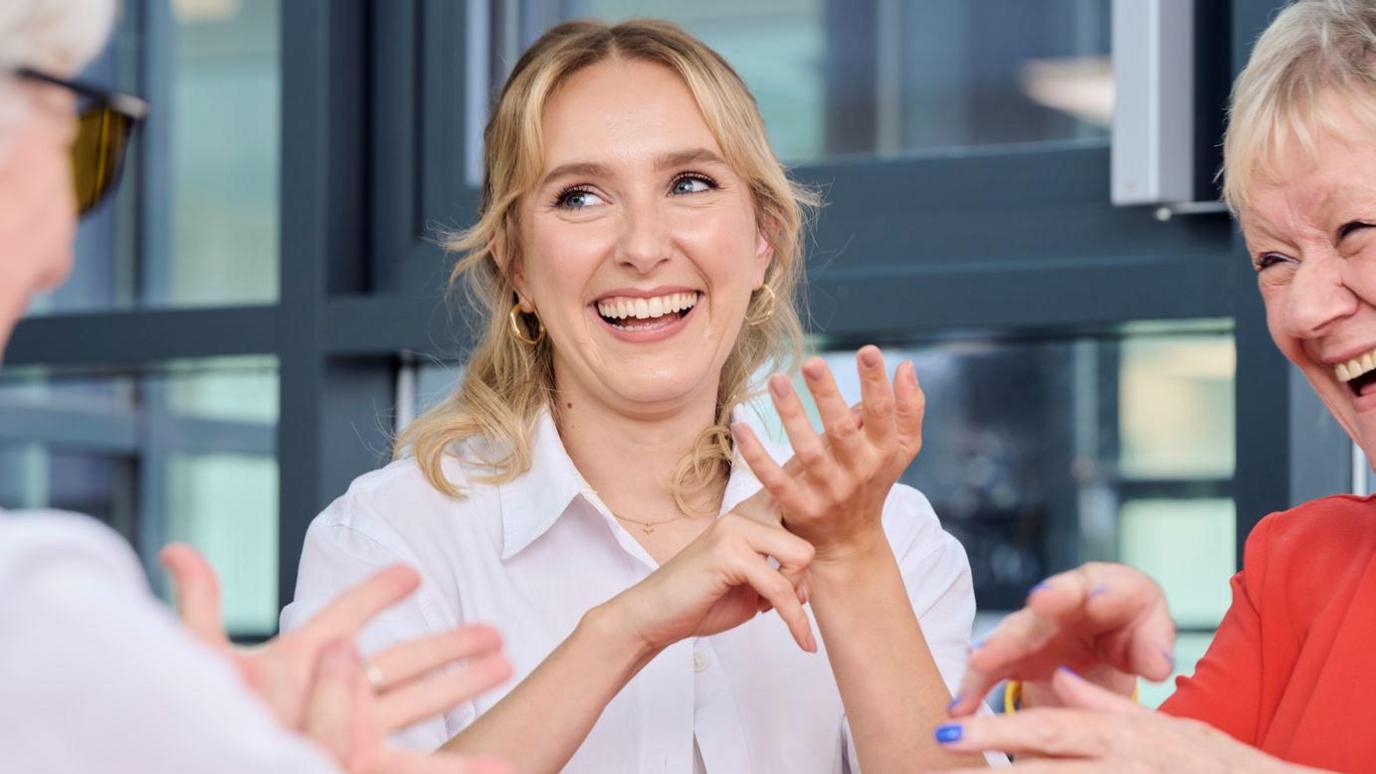
The impact is being felt far beyond Hughenden.
Mark says: "Since March we've had many interesting visitors - one from Canada and there's a deaf club in another retirement village where there are 20 people all learning BSL.
The retirement village is now focusing on how to be more deaf inclusive. Plans include deaf awareness training for all staff, new deaf-friendly entry intercoms, improved signage and the rollout of SignLive, a deaf-led video interpreting app.
While Mark continues to transform the retirement village, Tina is pleased that BSL has helped her regain confidence and improve her communication.
And the ripple effect continues. "Our family all watched the documentary," says Mark.
"And people come up to us in the streets to say we've inspired people to take it up."
Related topics
- Published13 October
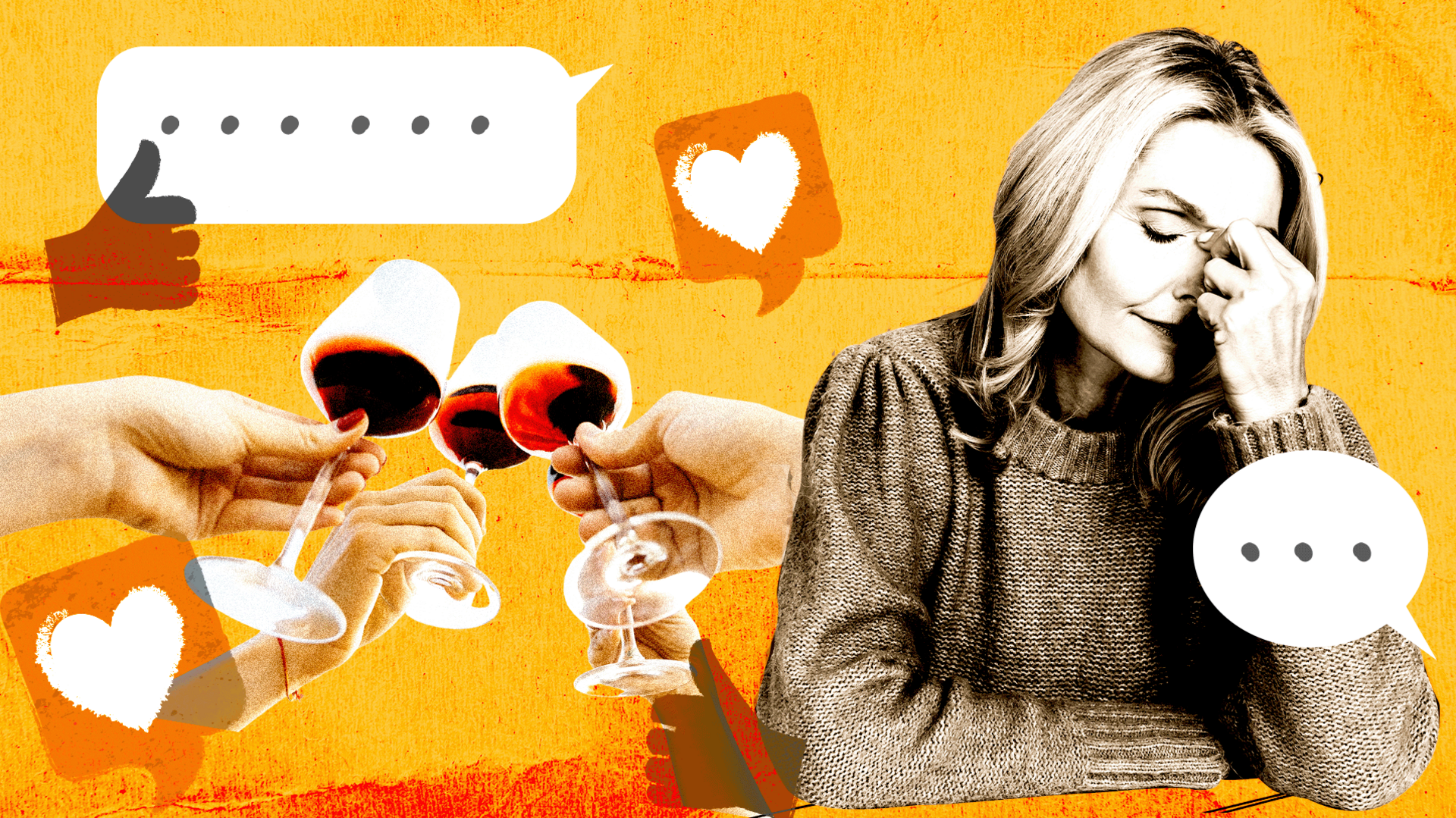
- Published30 August
